
Brand Messaging During A Global Health Crisis
Even though consumers are glued to their TV or smartphone, be mindful about buying media that could interrupt important live-saving news information.

5 Ways To Get To Know Your Customers
How Well Do You Know Your Customers?
Did you know every third Thursday of the Quarter is ‘Get To Know Your Customers Day’? Well, now you do. So the question is; how well do you know them? It’s important to know your target audience, but knowing your actual customers is just as important. It’s proven that knowing your customers and actively engaging with them will boost your revenue.
Whether you need to build relationships and trust with them for repeat business, or you just need to study their behavior to help you find more clients – you know the saying – Knowledge is Power.
Here are 5 strategies you can use to get to know your customers better.

1. Be Sure To Say "Thank You"
Thanking customers should be at the top of your mind. You can thank your clients in different ways – from cards, a gift, discount, or just a personal phone call – your customer will appreciate you even more.
– A personal thank you, in-person or over-the-phone, will help take your business to the next level. This is your opportunity to truly know your customer. After all the work is completed, a phone call can help build your relationship for repeat business and referrals.
– Gifting can be very powerful for a business to develop raving fans. You know it’s the thought that counts, but making a customer feel like you went above and beyond is icing on the cake! We love Greetabl. It’s a personal and easy way to say “Thank You”.
2. Ask For Feedback (More Than Once)
Asking for a review is important for your business reputation, but also it helps you know your customer. Embrace both the positive and negative to better your business, know your customers, and create better relationships.
– Email each customer after completed services asking for their feedback. We recommend emailing them at least three different times after a service to ask for feedback.
– Send a mass survey to customers to submit feedback about your services. Use this survey to also gather information like birthdays, anniversaries, hobbies, etc.
– Meet face-to-face. Show them that you’re interested in them, and that you care what they think.
The more you communicate with your customers, the better you’ll know them. Take what you learn about your customer’s experience, and put this new information to work in your business.
3. Look Deeper Into Website & Social Media Analytics
It’s not just about the metrics. You can learn a lot about your customers from how they interact with your social media platforms and website.
What To Look At: Demographics – Exit Pages & Bounce Rates – Call Tracking – Search Terms – and More.
What You’ll Learn? What do you customers care about most, and what types of content are they more likely to interact with? How long do they spend on researching your services?
4. Learn Your Customer's Other Buying & Consumer Behaviors
Do The Research. It will help your business grow. Learn from reputable sources on consumer trends, and apply it to your business. Here are some resources to check out to learn more about consumers and your competitors.
- Focus Groups
- SimilarWeb
- SocialRank
- GoogleTrends
- Google Keyword Planner
- Answer The Public
5. Make Learning About Your Customers A Habit
Make communicating with your customers a habit. Implement consumer research, email campaigns, social media and face-to-face engagement in your brand strategy.
- Ask for feedback and reviews
- Email customers often
- Thank them with gifts, discounts or personal communication
- Learn from website and social media metrics about your customer behavior
This, of course, is just a few of the ways to learn more about your customer.
Be Consistent. Your efforts will not go unnoticed.

Finding Your Roots (aka Your Keywords)
Keyword Research For Websites & Online Marketing
You have content on your website, but are you using the right keywords?
Every business needs to know their keywords to see success through an online marketing strategy. Keywords are descriptive words or phrases that when used properly on your website increase the chance of being found in search engine results.
Your goal should be to use keywords that are as relevant to what your target audience is searching for as possible. In order to show up on organic search results, the keywords you choose to target should be strategically used in your website content.
Why Are Keywords Important?
Because, Google. End of Story. – But Really – Just by using the right keywords could mean an increase in website traffic, foot traffic, leads, and of course, sales. In addition to a beautiful website design, there must be strategic keywords used to be found online.
Keywords help users feel comfortable they found what they are looking for. To be discovered [online] we must know who we are and why people need us.
Discovering or rediscovering your keywords is your first step to starting your digital marketing strategy.
How To Find The Right Keywords?
Don’t Assume!
As a business owner you know your industry inside and out, along with all the technical terms that go with it. However, you might describe what you offer using different words than your audience is looking for.
Exaggerated Example: If an individual is searching for a new ‘phone case’ on Amazon, but all your content is written as ‘protective enclosure’, then no one is finding your product. (Face palm)
Do The Research.
How are people going to search for your service or product online? Keyword research and discovery will allow us to ensure our web content is written to be found.
>> Know Your Target Audience – Before we start, you have to know who your ideal client is. Learn everything you can about them. This not only helps you in marketing, but throughout your entire business.
>> Talk To Your Customers – As we mentioned before, the language of your audience might differ from yours. Pay attention to this when having conversations with your customers to pick up on any new keywords you may not be targeting.
>> Brainstorm – We’ll make a list of what you think are the top keywords for your business.
>> Keyword Planning – Using marketing tools, we’ll apply that list to discover even more keywords and questions that people search for about your industry. (See Example Under Keyword Research)
>> Competitor Research – We can take a look at your top competitors to see how you measure up and what keywords they use to rank. (See Example Under Competitor Research)
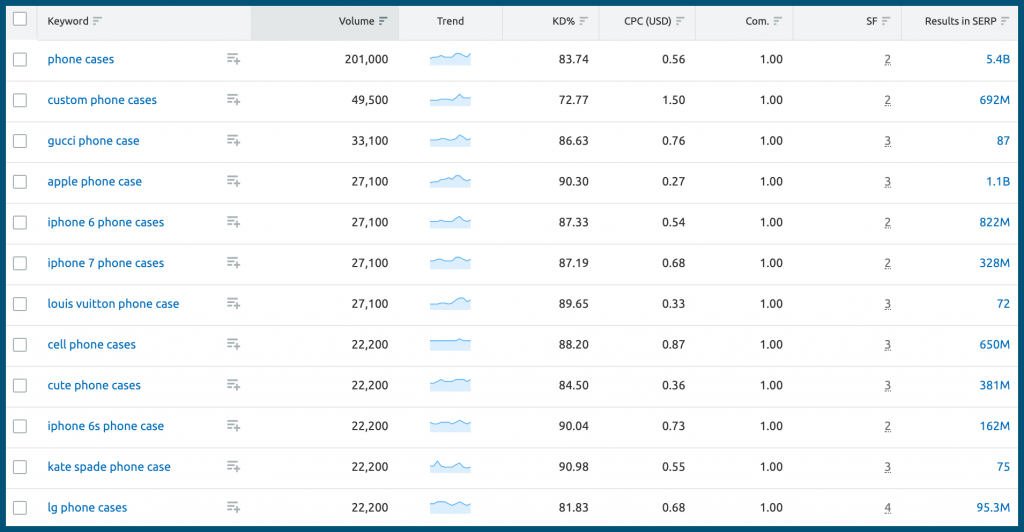
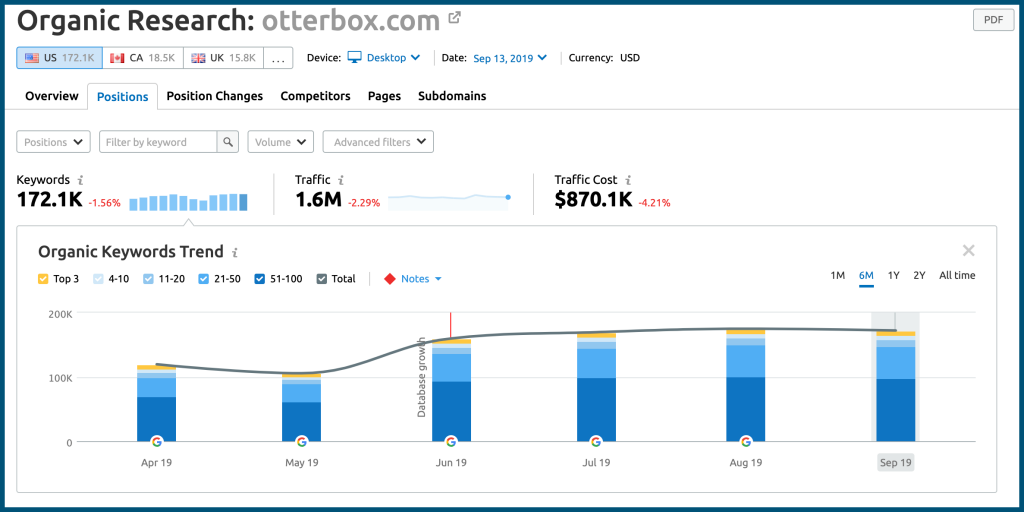
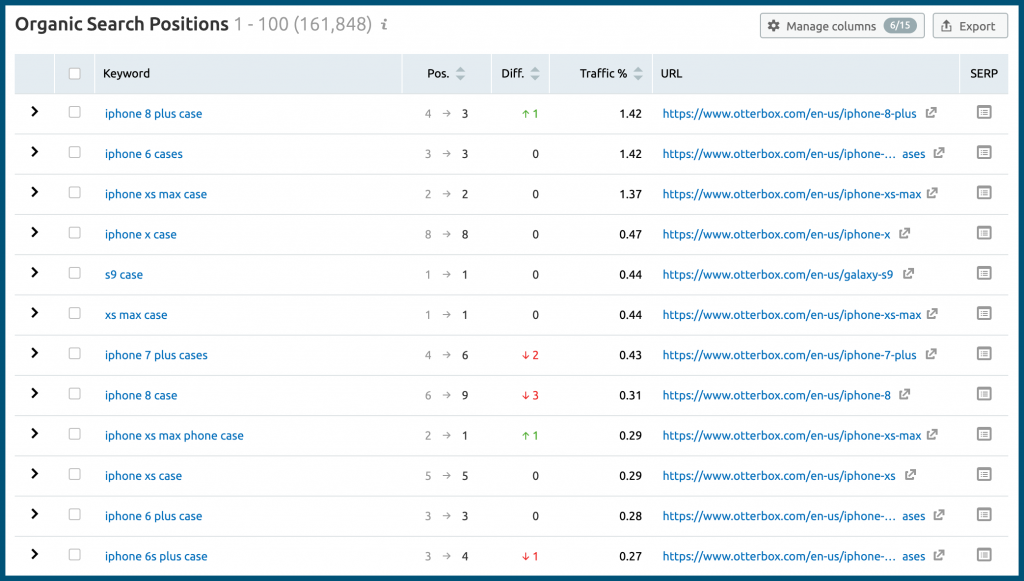

Use The Research.
Now you have a better understanding of your keywords. Let’s start developing some content!
Analyze your findings with common sense to write new copy for your website. Make sure your home page content flows well and is clear about who, what, when, where and why your company deserves the user’s business.
- Be Specific.
- Be Relevant.
- Follow best practices for SEO.
Keyword research should be done every 4 – 6 months to stay relevant. Keep in mind that we want to write for real humans, not just for the machines at Google.
PRO TIP: Answer ALL The Questions.
Writing marketing content for your website or blog can be tough. Here’s my best advice. Answer questions and solve the problems of your potential customers through your keywords. Through more research we can show you the top questions have about your service or product.
Develop excellent blog post ideas from these top questions that Google users have. (See Questions & Keyword Research)
Answer User’s Questions + Rank Higher = Win, Win!
Based on our research about phone cases, I would be writing a blog post about how to clean your phone case, and maybe a pricing blog on top phone cases available.
Just like with keyword research, it’s important to discover the questions your customers have about your business.
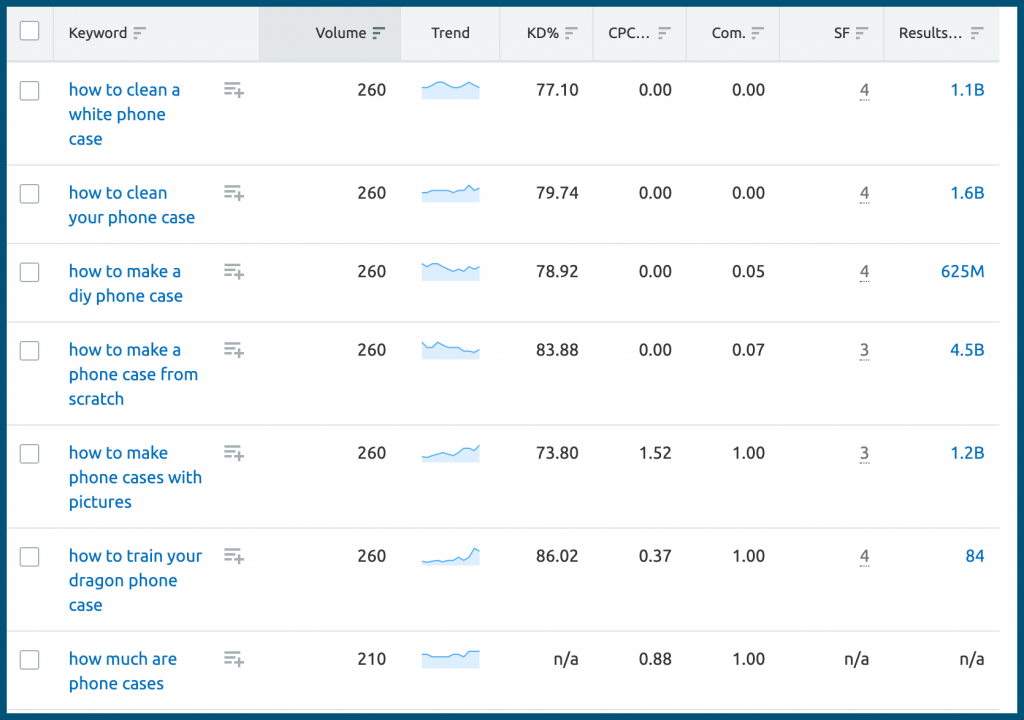
What's SEO and Does My Business Need It?
If you’re SEO-curious and want to know where your website ranks stand compared to competition, I can help. We’ll analyze and discuss your website needs, and how we can improve your website traffic and leads.
Call or email us today – liz@wilcoxmm.com or 832-449-2790

Local SEO: 3 Ways Every Business Can Improve Search Rankings
How Houston area business owners can use Local SEO to be found online.
Local SEO: The process of using tools and website optimization to be found by people using local based searches on Google (and other search engines.)
Local SEO is best utilized for businesses that are targeting a particular geographical area –like a restaurant or dentist office.
The process of being found online in 2019 can prove to be difficult for a lot local business owners. It takes time and when done correctly, can be very rewarding for businesses.
We have 3 tips that every business owner can start doing TODAY – without the help of a website developer.
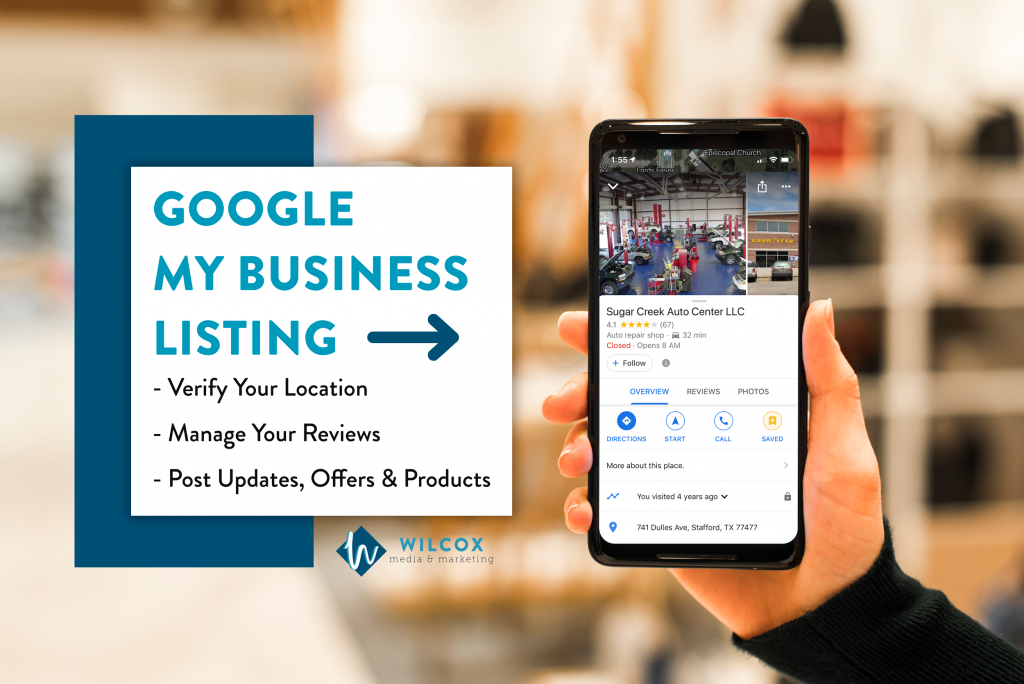
3 Tips Every Business Should Do To Optimize For Local SEO
#1 – Seek Local Opportunities For Online Exposure
This might be something you are already doing and you didn’t even know it! Are you a member of your local Chamber of Commerce? Do you sponsor events that have a quality online presence? Maybe you pay to have your business listed on your HOA’s website? These are all great opportunities that help your Local SEO by providing quality links back to your website.
A New Idea: Can you find a local blogger or influencer with a high quality following? Think of it as taking the infamous word-out-mouth tactic to the wonderful world wide web. Online exposure through third parties is a great marketing strategy for local businesses, and it’s one that you can do on your own.
#2 – Claim & Optimize Your Free Google My Business Listing. - Like Now!
You have probably used a Google My Business listing without knowing it. This is that awesome business listing that shows up when searching for your business. We cannot stress the importance enough of having a GMB Account for your company. Here’s how to get started and how we suggest you optimize your Google listing.
Claim Your Business: Do a quick Google search on your business and see if you have a current listing on the right side of your desktop browser. Toward the bottom of the listing it might say, ‘Own this business?’ – YES YOU DO! Click on that to get started. If nothing shows up when you search, you can start with a fresh Google My Business listing.
Verify Your Business & Start Optimizing: Once your location is verified, start optimizing your Google Business Listing. Be sure that all your contact information is correct! You should manage your reviews, updates, products and offers here. Best part is, you can manage it from your phone! Yep, just download the app.
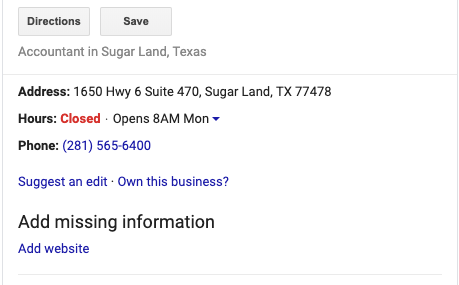
BONUS TIP:
Having a local area code for your phone number will help you rank higher on Google. It verifies that you are actually a local business and a good option for users.
#3 – Keep Your Website Content Search Friendly
Finally, your website should be search engine friendly. You can do this on your own if you manage your own website. Here are a few things you can do to optimize for Local SEO.
- Use the right keywords when writing content for your website.
- Write for your target audience. Be clear. Get to the point. Solve the problem the user has, and fast.
- Use the right heading tags (H1, H2, etc.) when creating new pages
- Add your city, state in your page title or headline.
- Do you blog?: Create content that pertains to the local community. Recap a time you had a local event with photos. Collaborate with other local businesses to see how you can share information online about their brand, and have them return the favor.
Local SEO + Strategic Marketing Plan
Local SEO coupled with a vigorous and technical search engine marketing strategy is how businesses obtain the highly coveted top organic search rankings.
Our passion is helping local businesses achieve those top rankings and maintain a strong online presence. Please reach out to us if you’re a business owner struggling with an impactful online marketing strategy. We would love to meet you!

4 Reasons Why Your Google Ads Aren’t Performing
Did you know? – Google controls 90% of the search market share.
What does this mean to you as a business owner?
It means that you and your competitors are vying for the same top placements on Google’s page 1. No matter your industry or business size, there is the same opportunity per search for your ad to make an impression. However, it’s not necessarily who is spending the MOST money. Just who is using their ad spend the most effectively.
Here is why Google Ads aren’t giving you the ROI you want.

#1 Ad Extensions and Why You Need Them?
It’s as literal as it sounds. Ad Extensions on Google Ads are an extension of your ad that provides more information about your company or specific services. Some extensions include adding service categories, a phone number, directions to your storefront and even showing reviews on your company. If you’re not showing them on your ads, you could be missing a lot of website traffic.
#2 You Aren’t Utilizing Mobile Ads
This is especially important for retail businesses with a storefront. Can a user simply see your ad and click ‘Get Directions’ or call your store? Studies show that 70-80% of consumers research your company, a service or product before making a purchase or visiting you.
Make sure your mobile ads are easy to read so they won’t get lost in the search. Also, use your judgement to bid-up on mobile ads!
#3 You Don’t Have Any Set Demographics or Audiences
Google Ads offers settings in demographics for your ad group settings that will help you spend your budget better. Narrow your target by age, gender and household income.
Creating Audiences, in observation mode, can help determine how your ads are performing. Do your clicks fall within those audiences?
#4 You’re Not Focusing on Local Searches
Including your city or well-known street in your ad description is a helpful tip for people interested in your ads. It is sometimes as simple as catching the eyes of your viewers.
Going back to #1 – make sure you include your location as an ad extension.
With all of these reasons why, there still are some major key factors into running a successful PPC campaign. Our team can audit your current Google Ads campaign and discuss your goals and objectives to your overall marketing plan.
